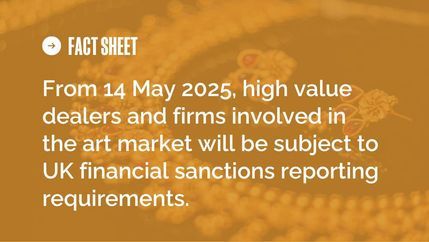 All letting agents across the UK have 12 months to register, from May 2020, with HMRC if they meet the requirements. HMRC’s online registration system for letting agents won’t be operational until this time.
All letting agents across the UK have 12 months to register, from May 2020, with HMRC if they meet the requirements. HMRC’s online registration system for letting agents won’t be operational until this time.
Compliance
All letting agents will need to comply with the regulations, despite not being able to register. Customer due diligence (CDD) checks will need to be carried out on any new tenants and landlords on or from 10 January 2020. Also, if an existing tenancy is renewed after this date, letting agents will need to carry out appropriate checks at that point on both parties.
Estate and letting business
Any letting agent who carries out sales and is already registered with HMRC for AML supervision and fall within the scope of the regulation, they will need to inform HMRC that they carry out lettings activity. This can be done once the online application process is up and running.
Preventing money laundering
Letting agents must take appropriate steps to identify and assess risks of money laundering and terrorist financing, establishing an up to date, written risk assessment and a written policy on how to manage the risk.
All businesses should appoint a nominated officer – Money Laundering Reporting Officer (MLRO) – who will be responsible for the letting agency complying with the Money Laundering Regulations.
All employees should be aware of the law too and business owners should provide regular training in how to recognise the deal with transactions that may be related to money laundering.
Customer due diligence
CDD must be carried out on both the tenant and landlord for any agency agreement with a monthly rent of 10,000 Euros (or equivalent amount) or more. This means identifying and verifying the customer, obtaining information on the nature of the business relationship and details of any beneficial owners. Carrying out CDD before establishing a business relationship should be done too.
Propertymark believes it is best practice for all letting agents, regardless of whether they fall under the definition of businesses with HMRC for AML supervision to carry out CDD on all their customers.
Penalties
If a business fails to comply with the Money Laundering Regulations, they may face civil penalties or criminal prosecution. This could result in unlimited fines and / or a prison term of up to two years.
Supervisory body
HMRC is the supervisory body for the property sector and their job is to promote the practice to combat, prevent and respond to money laundering, more information is available on their website.






